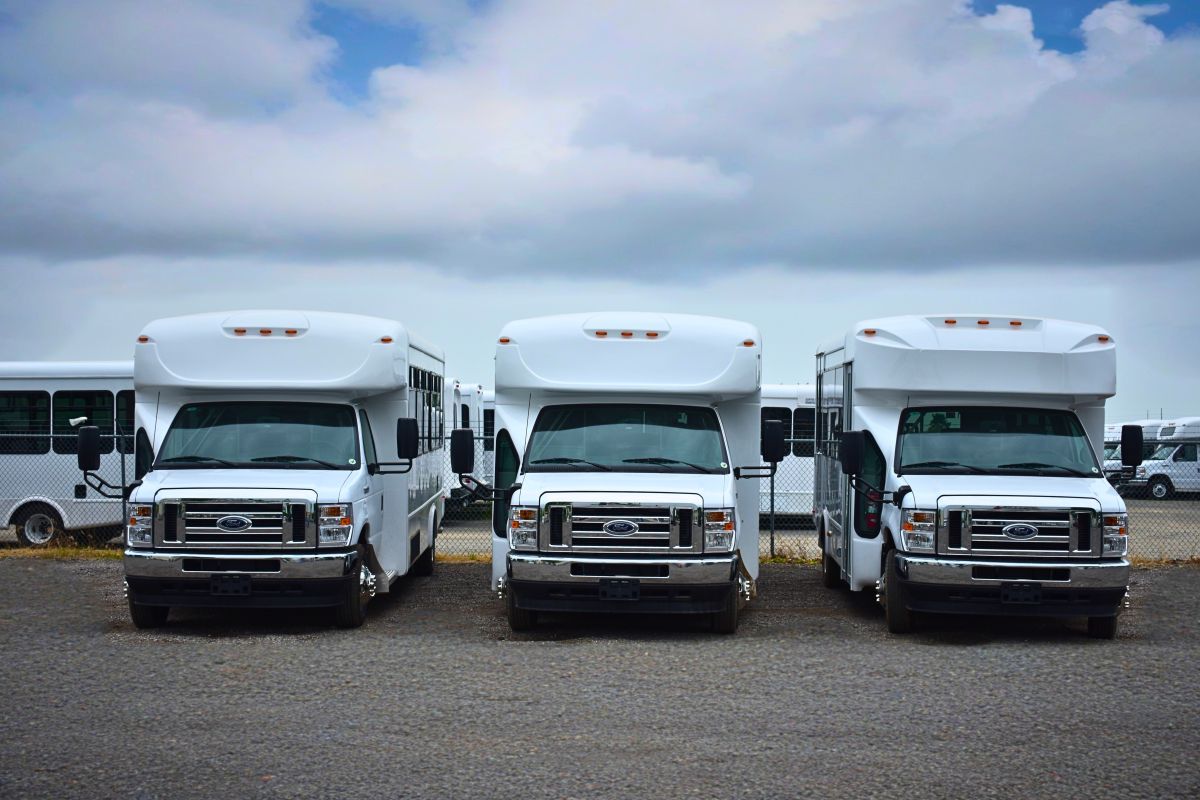Church transportation is more than logistics—it’s the foundation of every Sunday morning pickup, senior outing, youth trip, and community outreach, all of which begin with shared need: a safe, reliable shuttle bus.
With that in mind, this article shares key insights—emerging trends in transportation and what leaders should consider when evaluating shuttle options for their organizations.
Shuttle Bus Trends in the Church Community
- Increased Demand for Accessibility
One of the most notable shifts we’ve seen is a growing demand for ADA-compliant shuttles with wheelchair lifts and flexible seating options. Whether serving members or expanding outreach to the broader community, accessible buses are helping churches remove physical barriers.
- Smaller Buses, Bigger Impact
Many organizations opt for smaller shuttle buses that do not require a commercial driver’s license. Vehicles with a passenger capacity of up to 14 are not only easier to drive and park but also cost-effective in terms of fuel, maintenance, and insurance. These solutions are perfect for churches that rely on volunteers or staff who may not have CDL licenses.
- Comfort and Design Matter
Customers today want vehicles that reflect the hospitality they offer within their walls—clean, comfortable, and inviting. Bus manufacturers have responded by designing interiors that prioritize comfort, featuring high-back seating, enhanced HVAC systems, and customizable floor plans. After all, a welcoming ride can set the tone for the entire experience.
- Reliability and Ease of Ownership
Reliability and serviceability are top priorities for buyers, and rightfully so. Look for a supplier that manufactures high-quality components and supports customers long after the purchase with accessible parts, responsive dealer networks, and nationwide support.
What Leaders Should Consider When Choosing a Shuttle Bus
Investing in a shuttle bus is a big decision—one that involves stewardship, strategy, and service. If you are in the process of evaluating transportation options, here are a few key considerations we recommend discussing with leadership teams:
- Know Who You’re Serving
Is your primary need transporting seniors to and from services? Shuttling youth to events? Supporting local outreach efforts? Defining your core audience is the first step in understanding the type of seating, accessibility, and floor plan flexibility you will need.
- Consider Driver Requirements
One of the first questions church leaders should ask is: Who will be driving this bus? In many cases, volunteers or staff members without CDLs are more readily available than commercial drivers. If that’s true for your team, some options maximize capacity while remaining within the non-CDL limit, depending on your state.
- Focus on Purpose, Then Features
It’s easy to get overwhelmed by features—but the most important thing is aligning the vehicle with your mission. Do you need luggage storage for trips? Securement systems for wheelchairs? Consider how this vehicle will support your organization throughout the week.
- Plan for the Long-Term
A shuttle bus is a long-term investment. Churches should consider the total cost of ownership, including fuel, insurance, warranty, and service access. There are a wide range of models designed for durability, with many options built on trusted chassis from original equipment manufacturers such as Ford, Chevrolet, and GM.
- Don’t Overlook Support and Service
Look for a dealer network made up of knowledgeable, responsive, and reliable partners who are committed to your long-term success. Good dealers don’t just sell buses; they provide ongoing support, timely communication, and trusted service you can count on.
Why It Matters
At its core, transportation is about more than getting from point A to point B—It’s about making sure no one is left behind. These vehicles become vessels of service and connection.
Final Thoughts
As your congregation grows and changes, so do your transportation needs. Whether you’re exploring your first shuttle or expanding your fleet, you can find the right solution.
From design to delivery, Forest River Bus has built its reputation on safety, durability, and—most importantly—trust. If you’re ready to explore your options or start the conversation, they invite you to connect with their network of dealers, www.forestriverbus.com.







